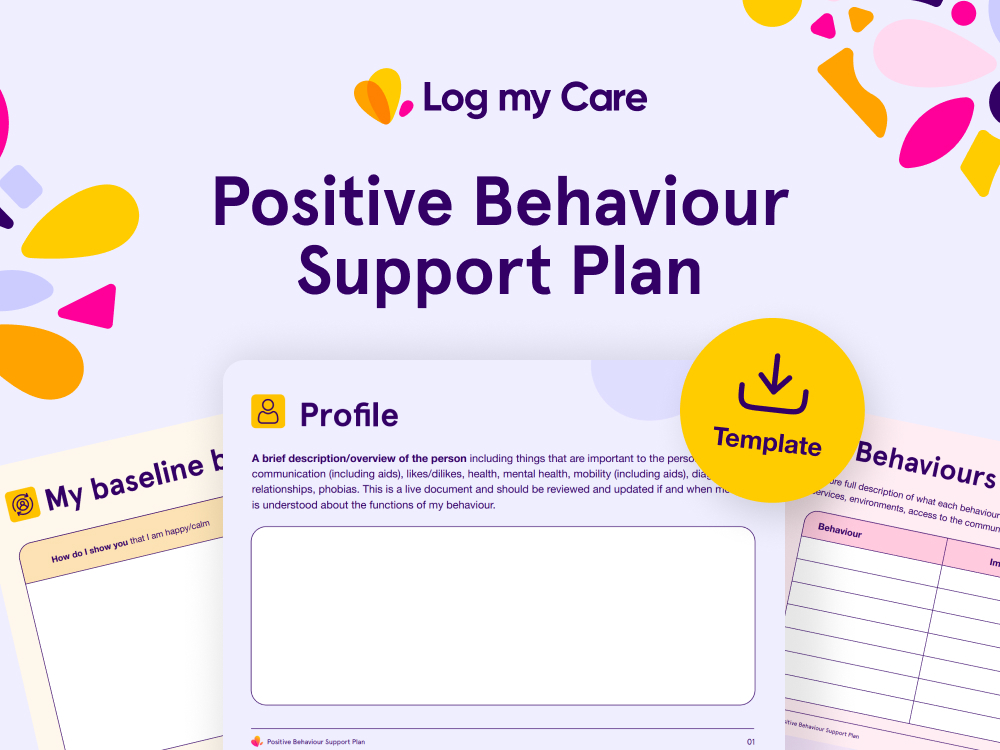Positive Behaviour Support plan template
Download your free Positive Behaviour Support (PBS) template to help you understand and support individuals to manage behaviours that challenge.
Download our PBS plan template
This PBS plan template will guide you on best practices to implement PBS in your own organisation.

Positive Behaviour Support (PBS) is a person-centred framework used to understand and support an individual to manage behaviours that challenge. The framework is mostly used with those living with a learning disability and/or autism.
Benefits of Positive Behaviour Support plans
Positive Behaviour Support plans focus on understanding the reasons behind challenging behaviours and it is important to remember that these behaviours often occur due to an unmet need or communication difficulties. Some of the benefits of using a PBS plan include:
- Helps you identify patterns or triggers of behaviours
- Aids strategies to be implemented that focus on positive reinforcement than punishment (which sadly still happens in a lot of learning disability services)
- Ensures support is based on the individuals needs and preferences
- Increases the persons dignity
- Promotes independence through coping strategies, confidence and independence
How to set up a positive behaviour support plan
The key to a great Positive Behaviour Support plan is knowing the person so you can truly personalise it to meet their needs. The PBS plan will want to capture three key things:
- A brief description/overview of the person including things that are important to them, communication (including aids), likes/dislikes, health, mental health, mobility (including aids), any diagnosis, relationships and phobias. This is the part that allows staff to truly understand the person they are supporting.
- How the individual likes to communicate, what aids do they need, the level of their understanding and what support they need etc.
- The individual’s functional skills - what skills do they have, do they need support to complete them and if so, what support do they need etc. Functional skills include communication, decision making, safety awareness, self-care, leisure and recreation interests and vocational skills.
Learn more about creating a PBS plan in your organisation in our blog post.
Discover more resources
Here's a selection of similar guides and resources to support you to achieve outstanding outcomes in social care


